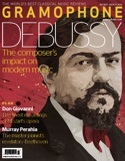Texte paru dans: / Appeared in: |
|
|
Outil de traduction (Très approximatif) |
|
|
Reviewer: David Vickers The heroic-pastoral melodrama Dorilla in Tempe (Venice, 1726) was revived by Vivaldi in 1728 (Venice) and 1732 (Prague), but the only version for which a musical source survives is a pasticcio rearrangement put on at Venice’s Teatro Sant’Angelo in 1734 – so about half the arias are not by Vivaldi. Diego Fasolis and I Barocchisti deliver a ripe and zesty performance that is immeasurably superior on all fronts to the patchy recording by the Ensemble Baroque de Nice directed by Gilbert Bezzina (Pierre Verany, 2/95). In this new account there is dramatic tautness to recitatives that recount the tribulations that hinder the blissful union of Dorilla (a princess of Thessaly) and Elmiro (a shepherd), whose rival Nomio turns out to be the disguised Apollo; the god slays the dragon Python that is plaguing Thebes, but eventually resigns his claim on Dorilla, sorts out the misunderstandings between the bickering lovers Eudamia and Filindo, and presides over a double marriage ceremony. The opening chorus ‘Dell’aura al sussurrar’ heralding the arrival of spring is a parody of the beginning of The Four Seasons (published shortly before the original 1726 production); it is played and sung charismatically, although I am surprised that the additional interleaving solo passages are taken by entire sections of the Coro della Radiotelevisione Svizzera. Several brief hunting choruses are dispatched with verve at the end of Act 2, although gutsy velocity is at the expense of bucolic charm. King Admeto’s astonished response to Nomio’s promise to slay Python (‘Dall’orrido soggiorno’) is sung boldly by Christian Senn and horns introduced halfway through pack a surprising punch. Dorilla’s horrified reaction to being sacrificed to appease Python (in a manner like Andromeda chained to the seashore) is acted powerfully by Romina Basso, although Fasolis’s interventionist continuo instrumentation with bubbling organ and other tricks is unnecessarily distracting. Elmiro’s energetic Neapolitan-style arias by Hasse and Leo are sung vivaciously by Serena Malfi. Filindo’s explosive aria di bravura ‘Rete, lacci, e strali adopra’ (by Giacomelli) showcases Lucia Cirillo’s declamatory brilliance, whereas Marina de Liso’s stylish singing is complemented by softly tender strings and intimate plucked continuo realisations in Nomio’s ‘Bel piacer saria d’un core’ (also by Giacomelli). Sonia Prina is in extrovert voice as Eudamia; the densely whirling strings in ‘Al mio amore il tuo risponda’ is unmistakably authentic Vivaldi, as are the thrilling shifts of unbridled tension in Nomio’s ‘Fidi amanti al vostro amore’.
It is possible to imagine a less abrasive and more charmingly shaded account of
this rarely revived curiosity but the long-awaited resumption of Naïve’s Vivaldi
Edition is cause for celebration. |
|




